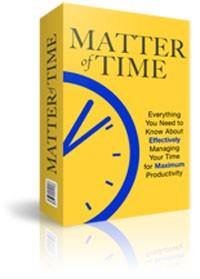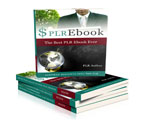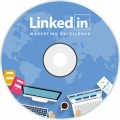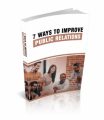
 License Type: Personal Use
License Type: Personal Use  File Size: 2,599 KB
File Size: 2,599 KB File Type: ZIP
File Type: ZIP
 SKU: 14425
SKU: 14425  Shipping: Online Download
Shipping: Online Download
Ebook Sample Content Preview:
Prioritize your tasks
Some people say that it is best to get your hardest task out of the way at the beginning of the workday when you're feeling fresh. That's the time when you have the most energy to complete the task, and you feel like you've accomplished something big so you will be less stressed as the day goes on. Other people like to finish a lot of small jobs first and build momentum as the day goes on. The more they cross off their to do list, the more productive and confident they feel. You should try out both ways to see which one motivates you. The one that works for you is the one you should stick with.
Use calendars or daily planners
You've probably seen a wide variety of calendars and planners available in any office supply store or department store. It would be a good idea to spend a little time looking at them to find out which one will work best for you.
First decide what type of system you're going to use and then find a calendar or planner that matches that system. You can use traditional paper and pen, or you could use an electronic PDA, or web-based application (Plan Plus Online by Franklin Covey is a very good application). Remember, though, calendars and planners only work if you use them; take them seriously and remember to schedule everything. Then check your planner before you make new appointments because your memory could be faulty.
It won't take long at all until using a planner becomes second nature. After a while you'll be happy you have it. It gives you fewer things to remember.
Limit your distractions
You are probably painfully aware of all the distractions we are constantly bombarded with. We all are aware of Facebook, Twitter, instant messaging, email, and even computer solitaire or other computer games.
This is where you have to rely on your own self-discipline to limit those things so that you can get your important tasks completed. Some people work well with music; if you're one of them, there is no reason to turn the music off. Most people don't work well with constant distractions whether they come in the form of people, email, or a ringing phone. You need to find a system to deal with these.
One thing you could try if you really enjoy these distractions is rewarding yourself with them after you've completed important tasks. A test you could perform would be to see how much work you accomplish when you turn off all the distractions, compared to how much you accomplish when distractions are going on. The results might surprise you.
Set a specific time to work on less important tasks
Just because less important tasks can be distractions, it doesn't mean they don't need to be taken care of. How you handle them depends on your nature. If you have a lot of discipline, you can intersperse things like e-mail or phone calls throughout your day for brief periods of time. But if you tend to stay on the phone for long periods of time because you enjoy it and not for productive reasons, then you may need to appropriate phone calls to certain times of the day after important jobs are finished and to time yourself while you're on the phone.
If you find it almost impossible to hit the delete key when you're going through your email, then you probably don't want to start your day with that. Email can act like a bright shiny object and make you afraid that you're missing something if you don’t open every one. It's not exaggerating to say that email can eat up your entire day every day if you let it. If that's a weak area for you, only allow yourself to take care of it for certain amount of time every day. You could even set a timer and force yourself to complete your email within a certain number of minutes. This might be difficult at first, but it's something you'll probably catch onto pretty quickly.
If you work at home, another boundary you might need to set is letting your clients know when they can and can’t call, such as during family time or evening meals.







